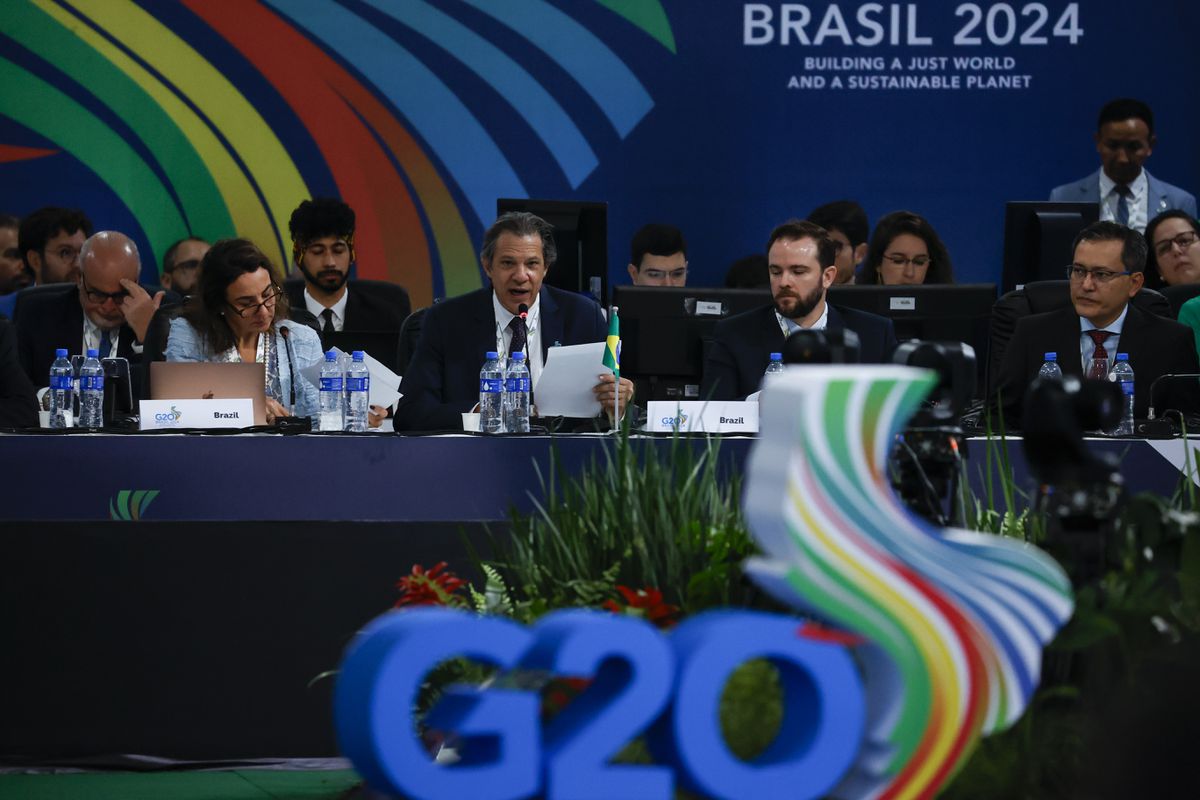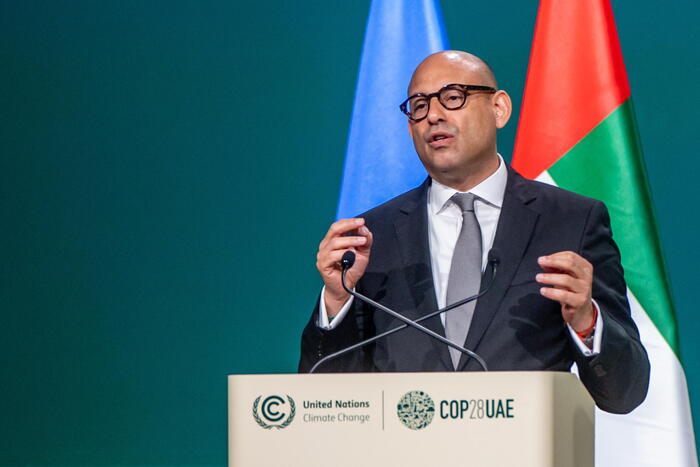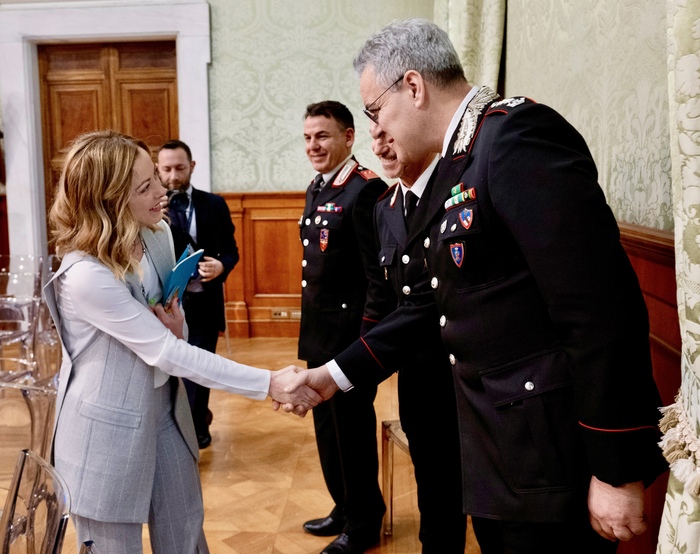"I am convinced that leadership is stronger through partnership".
There was in the words of Emmanuel Macron this Sunday, at the end of the G7 summit, a real satisfaction.
And the desire to demonstrate that a turning point has taken place since Donald Trump left the White House and Joe Biden settled there.
Meeting for three days in Cornwall, in the south-west of England, the leaders of the great powers of the G7 affirmed on Sunday their desire to end the Covid-19 pandemic through the distribution of vaccines and to act for the climate, during a summit marked by a new dynamic in favor of Western multilateralism, the United States in the lead.
We summarize the different announcements.
One billion doses of vaccine for poor countries
Faced with calls for solidarity which have multiplied in recent months, the G7 has agreed to redistribute one billion doses of anti-Covid vaccines by the end of 2022 in order to make up for the delay in immunization in poor countries and to promote a more egalitarian recovery. The project had been revealed by Boris Johnson even before the start of the summit, it was formalized at its end. "The leaders are committed to more than a billion doses" by financing them or via the Covax sharing mechanism, welcomed the British Prime Minister, which brings to two billion the total commitments since the start of the crisis sanitary.
At a press conference, Emmanuel Macron gave some additional details.
The goal would be to achieve a vaccination rate of 60% of the world's population by 2022, with a milestone of 40% by the end of the year.
France, as part of this effort, has pledged to provide 60 million doses by the end of the year.
This billion is far from sufficient, however, deplore many actors, from NGOs to the World Health Organization (WHO): at least 11 billion doses are needed to end the pandemic.
🔴 Vaccination: Emmanuel Macron announces that the G7 is committed to sharing a billion doses to poor countries, half of which by the end of the year
🇫🇷 France will deliver 60 million doses by the end of the year 'year pic.twitter.com/kpEfhcdYZf
- BFMTV (@BFMTV) June 13, 2021
G7 leaders have set out a battle plan with the hope that the world will be ready in less than 100 days to face a new pandemic.
And since, to better fight against the pandemic, it would be good to know its origins, the member countries of the G7 have requested a more in-depth investigation by the World Health Organization (WHO) into the origin of the virus in China. .
The idea, of course, is whether it could have come from a laboratory accident.
Moscow and Beijing singled out
Diplomacy also had pride of place during the three-day summit, with China and Russia in the sights. The G7 calls on Beijing to "respect human rights" in Xinjiang, where the Uyghur minority lives, as well as in Hong Kong. He also urges Russia to cease "its destabilizing activities", in particular via cyberattacks, according to the final press release. Recall that President Joe Biden will conclude his European tour with a long-awaited trip to Moscow for a meeting with Vladimir Putin. He warns: "It is not about a contest to find out who is the best at a press conference to try to embarrass the other, it is about indicating very clearly what are the conditions to be fulfilled in order to obtain a better relationship with Russia. We are not looking for conflict, ”he promises.
For his part, Emmanuel Macron makes a distinction between Russia and China. "There are differences between democracies that have become illiberal, like Russia, and powers that have become undemocratic like China." But, he assures, “the G7 is not a club hostile to China”. Despite the disagreements, the head of state defends a "positive agenda" and calls for working with China on all issues whenever possible.
Through working sessions and asides, US President Joe Biden has endeavored to unite his allies against Moscow and Beijing, a major objective of his European tour which should mark the "return" of the United States to the United States. international scene after the Trump era.
His arrival in power brought "a new impetus" to the work of the G7, welcomed the German chancellor on departure, Angela Merkel.
To counter the Chinese "New Silk Roads", the G7 has also launched a vast infrastructure plan in climate, health, digital technology and the fight against inequalities in order to help poor countries to recover from poverty. the pandemic.
But these announcements are not to the liking of Beijing, which denounced decisions taken by "a small clique of countries".
Accelerate against global warming
Another priority issue: the climate emergency, with an action plan to try to limit global warming. The stakes are high for the United Kingdom, which wanted to lay the foundations for a consensus a few months before the major UN climate conference (COP26) which it will host in Glasgow (Scotland) in November. The aim is to limit the increase in temperatures below 1.5 ° C compared to the pre-industrial era, a threshold beyond which scientists believe that climate change will get out of hand.
To achieve this, the G7 leaders have called for a reduction of about half of their greenhouse gas emissions by 2030, a target that some countries intend to exceed. They want to turn their backs on power plants fueled by coal, the most polluting fossil fuel, unless environmental compensation measures are in place, such as CO2 capture. Public aid will be stopped this year.
In this context, the leaders plan to sign a check for up to $ 2 billion to support the green transition in disadvantaged countries.
G7 contributions will be increased in order to meet the objective of developed countries to finance climate policies of poor countries to the tune of $ 100 billion per year by 2025.
For environmental activists, it is too soft or too vague.
Greenpeace denounced heated “old promises” and Extinction Rebellion called the summit a “flop”.
Advance on international taxation
On June 5, the finance ministers of the G7 member countries agreed to implement a minimum corporate tax rate of at least 15%. This agreement was “consolidated” by the heads of state and government of the G7 member countries, commented on Emmanuel Macron.








